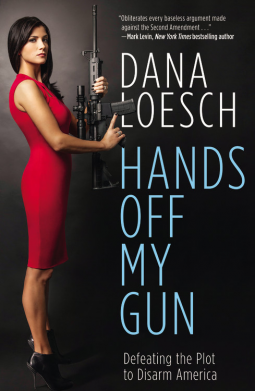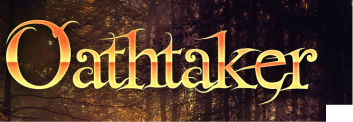
Reviewed for NetGalley.
* * * * *
At the outset, it bears noting that the cover for Hands Off My Gun, by Dana Loesch, is positively striking!
Loesch provides a summary of her experience with firearms, from the time she was a young child to the present, concentrating on issues of personal responsibility and the need to protect herself and her family in light of the many threats she has received. It is interesting that some from among the ranks of those seeking greater gun control laws, are so quick to bandy about the very threats that leave others (like Loesch, who merely seeks to voice her own position on the issue), convinced of the need to carry arms for protection. (I shudder to think what would happen if words of a similar nature were spoken, or written, or tweeted as the case may be, by those who seek to guard and preserve Americans’ Second Amendment rights.)
Hands Off My Gun provides a discussion of the importance of teaching others, including children, about firearms and firearm safety. I, like Loesch, grew up in a home where these lessons were taught. We knew, as Loesch says, that “guns aren’t toys.” They are tools of self-preservation and of self-protection. If this were not the case, why would so many of those who seek to disarm Americans, surround themselves with paid, gun carrying, bodyguards?
Loesch shares statistics that speak to where most gun crime is committed and she shares stories of some who have been saved because they or someone else carried. As a current-events case-in-point, we can only wonder how many more would have been harmed in Oklahoma when Traci Johnson was recently beheaded at Vaughan Foods, had a gun-carrying hero not shown up at the scene.
I commend Loesch for providing summaries regarding the passing of the Second Amendment, and of the history of gun control laws and race relations in America. Had Martin Luther King been allowed to carry—as he sought to do, but was denied—he might have lived to provide an even greater impact on American society and race relations.
Having listened to and seen Dana Loesch on numerous cable and radio interviews, I quickly picked up on her “voice” in this work. It is a voice with which I am comfortable—even (especially?) including the sarcasm it oft-times presents. I do find myself wondering, however, how influential a work of this nature might be if told “straight.” That is, I wonder to what extent others would entertain a fair reading of the history and meaning of the Second Amendment if they did not “hear” the voice of the one telling it, one they’ve been warned in advance, to ignore . . .
* * * * *
At the outset, it bears noting that the cover for Hands Off My Gun, by Dana Loesch, is positively striking!
Loesch provides a summary of her experience with firearms, from the time she was a young child to the present, concentrating on issues of personal responsibility and the need to protect herself and her family in light of the many threats she has received. It is interesting that some from among the ranks of those seeking greater gun control laws, are so quick to bandy about the very threats that leave others (like Loesch, who merely seeks to voice her own position on the issue), convinced of the need to carry arms for protection. (I shudder to think what would happen if words of a similar nature were spoken, or written, or tweeted as the case may be, by those who seek to guard and preserve Americans’ Second Amendment rights.)
Hands Off My Gun provides a discussion of the importance of teaching others, including children, about firearms and firearm safety. I, like Loesch, grew up in a home where these lessons were taught. We knew, as Loesch says, that “guns aren’t toys.” They are tools of self-preservation and of self-protection. If this were not the case, why would so many of those who seek to disarm Americans, surround themselves with paid, gun carrying, bodyguards?
Loesch shares statistics that speak to where most gun crime is committed and she shares stories of some who have been saved because they or someone else carried. As a current-events case-in-point, we can only wonder how many more would have been harmed in Oklahoma when Traci Johnson was recently beheaded at Vaughan Foods, had a gun-carrying hero not shown up at the scene.
I commend Loesch for providing summaries regarding the passing of the Second Amendment, and of the history of gun control laws and race relations in America. Had Martin Luther King been allowed to carry—as he sought to do, but was denied—he might have lived to provide an even greater impact on American society and race relations.
Having listened to and seen Dana Loesch on numerous cable and radio interviews, I quickly picked up on her “voice” in this work. It is a voice with which I am comfortable—even (especially?) including the sarcasm it oft-times presents. I do find myself wondering, however, how influential a work of this nature might be if told “straight.” That is, I wonder to what extent others would entertain a fair reading of the history and meaning of the Second Amendment if they did not “hear” the voice of the one telling it, one they’ve been warned in advance, to ignore . . .


